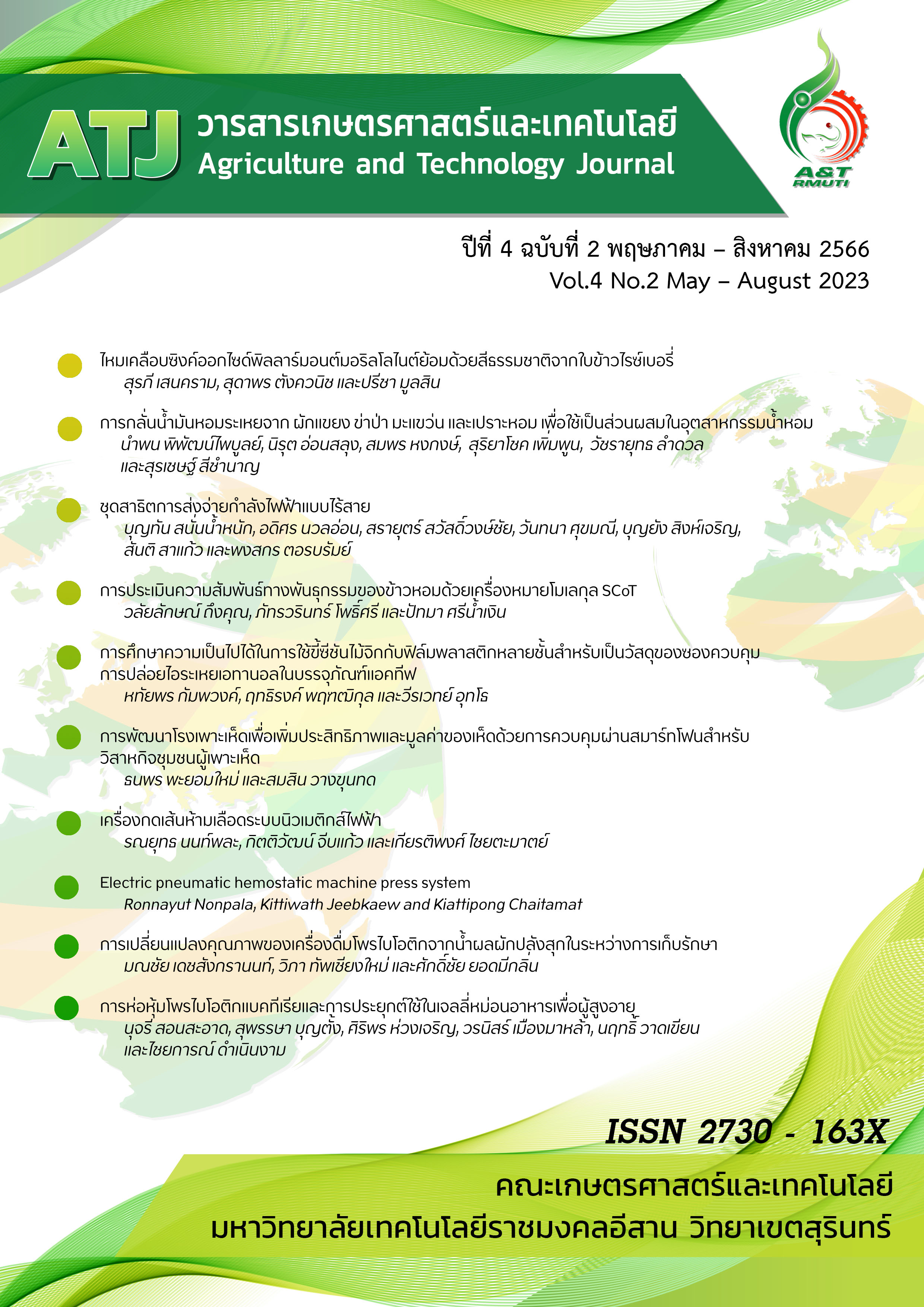Different Plant Extracts Against the Early Blight (Alternaria solani) on Tomato (Solanum lycoperisicum)
คำสำคัญ:
Alternaria solani, Allium sativum L., Carica papaya, Azadirachta indica, Phytochemical compoundsบทคัดย่อ
Alternaria solani, the causal agent of early blight disease, is one of the most destructive pathogens of Solanumm lycopersicum and reduces productivity by approximately 80%. The aim of this study was to assess the efficiency of three different plant extracts to control Alternaria solani on tomato under field conditions. A Randomized Complete Block Design (RCBD) was used with four replications and four treatments, namely Allium sativum L., Carica papaya, Azadirachta indica, and control (water). Allium sativum L. (Garlic), Carica papaya (paw paw) and Azadirachta indica (Neem) extracts were observed to be more effective on disease severity and disease incidence during week four with a significant difference (P<0.01) compared to the control treatment. The plot treated with Carica papaya showed the highest total yield, followed by Azadirachta indica and Allium sativum L. (1052.8g, 639.8g, and 566.8g, respectively) with significant differences (P<0.01) while the control treatment produced 265g. The application of plant extracts revealed a significant reduction of early blight disease as well as an increased total yield of tomatoes compared to the control treatment.
ดาวน์โหลด
เผยแพร่แล้ว
เวอร์ชัน
- 19-02-2024 (2)
- 30-08-2023 (1)
รูปแบบการอ้างอิง
ฉบับ
ประเภทบทความ
สัญญาอนุญาต
ลิขสิทธิ์ (c) 2023 วารสารเกษตรศาสตร์และเทคโนโลยี

อนุญาตภายใต้เงื่อนไข Creative Commons Attribution-NonCommercial-NoDerivatives 4.0 International License.
เนื้อหาและข้อมูลในบทความที่ลงตีพิมพ์ในวารสารทดสอบระบบ ThaiJo2 ถือเป็นข้อคิดเห็นและความรับผิดชอบของผู้เขียนบทความโดยตรงซึ่งกองบรรณาธิการวารสาร ไม่จำเป็นต้องเห็นด้วย หรือร่วมรับผิดชอบใดๆ
บทความ ข้อมูล เนื่อหา รูปภาพ ฯลฯ ที่ได้รับการดีพิมพ์ในวารสารทดสอบระบบ ThaiJo2 ถือเป็นลิขสิทธิ์ของวารสารทดสอบระบบ ThaiJo2 หากบุคคลหรือหน่วยงานใดต้องการนำทั้งหมดหรือส่วนหนึ่งส่วนใดไปเผยแพร่หรือเพื่อกระทำการใดๆ จะต้องได้รับอนุญาตเป็นลายลักอักษรณ์จากวารสารทดสอบระบบ ThaiJo2 ก่อนเท่านั้น






